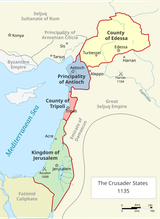>>213372122
>Saladin
Why Saladin’s Failure Carried Political Weight in the Muslim World
1. Religious & Cultural Context
In medieval Islamic thought, leprosy was often seen as a sign of najasa (ritual impurity) or divine punishment.
For Saladin, champion of jihad, being unable to decisively defeat a visibly diseased opponent risked undermining his spiritual prestige.
2. Rival Muslim Propaganda
Saladin had rivals in Syria and Mesopotamia (e.g., the Zengids) who could use his repeated stalemates with Baldwin to question his legitimacy.
While no chronicler bluntly mocks him, the awkwardness is visible in how they overpraise Baldwin to make defeats seem less shameful.
3. Strategic Frustration
Baldwin repeatedly frustrated Saladin’s offensives and prevented him from bringing about the decisive confrontation he wanted.
Saladin’s avoidance of direct battle when Baldwin was present was noticed by both sides — a tacit admission of Baldwin’s skill.
4. Narrative Control by Muslim Historians
Chroniclers like Ibn al‑Athir, Imad ad‑Din, and Baha ad‑Din framed Baldwin as an extraordinary, almost chivalric opponent.
This reframing softened the humiliation of Saladin’s failures by suggesting Baldwin was no ordinary foe — he was, despite leprosy, a “lion‑hearted” king.
Legacy
When Baldwin IV died in 1185:
The kingdom’s borders were intact.
Its army was unbroken.
Its political center was stable under his regency system.






















